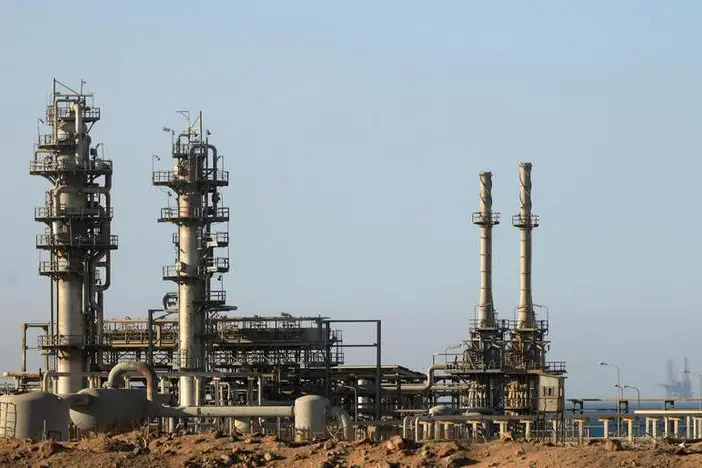PHOTO
NEW YORK - Oil prices fell more than 2% on Friday as concerns about Chinese cities in lockdown due to coronavirus outbreaks tempered a rally driven by strong import data from the world's biggest crude importer and U.S. plans for a large stimulus package.
Brent was down $1.33, or 2.3%, at $55.17 by 11:59 a.m. EST (1559 GMT), after gaining 0.6% on Thursday. U.S. West Texas Intermediate crude was down $1.17, or 2.1% at $52.44 a barrel, having risen more than 1% the previous session.
Both benchmarks, which hit their highest in nearly a year earlier in the week, were are heading for their first weekly declines in three weeks.
While producers are facing unparalleled challenges balancing supply and demand equations with calculus involving vaccine rollouts versus lockdowns, financial contracts have been boosted by strong equities and a weaker dollar, which makes oil cheaper, along with strong Chinese demand.
These positives were called into question on Friday as the dollar rose and China ramped up lockdown measures.
A nearly $2 trillion COVID-19 relief package in the United States unveiled by President-elect Joe Biden may increase oil demand from the world's biggest crude consumer. Still, some analysts said the move may not be enough to stoke demand.
"In terms of being able to talk about demand, Asia was the only brightspot," said John Kilduff, Partner at Again Capital Management in New York. "This renewed lockdown is striking at the heart of the demand picture in Asia. It's trouble."
Crude imports into China were up 7.3% in 2020, with record arrivals in two out of four quarters as refineries increased runs and low prices prompted stockpiling, customs data showed on Thursday.
But China reported the highest number of daily COVID-19 cases in more than 10 months on Friday, capping a week that has resulted in more than 28 million people under lockdown as it suffered its first coronavirus death on the mainland since May.
"The COVID-19 pandemic's spread is taking centre stage again and traders are getting increasingly worried about the long duration of European lockdown and about the new restrictions (in) China," Bjornar Tonnage from Rystad Energy said.
"The market is structurally bullish, but it may be getting too ahead of forward-looking fundamentals."
(Additional Reporting by Noah Browning and Aaron Sheldrick; Editing by Marguerita Choy and Louise Heavens) ((Jessica.Resnick-Ault@thomsonreuters.com; +1 332 219 1145;))





















